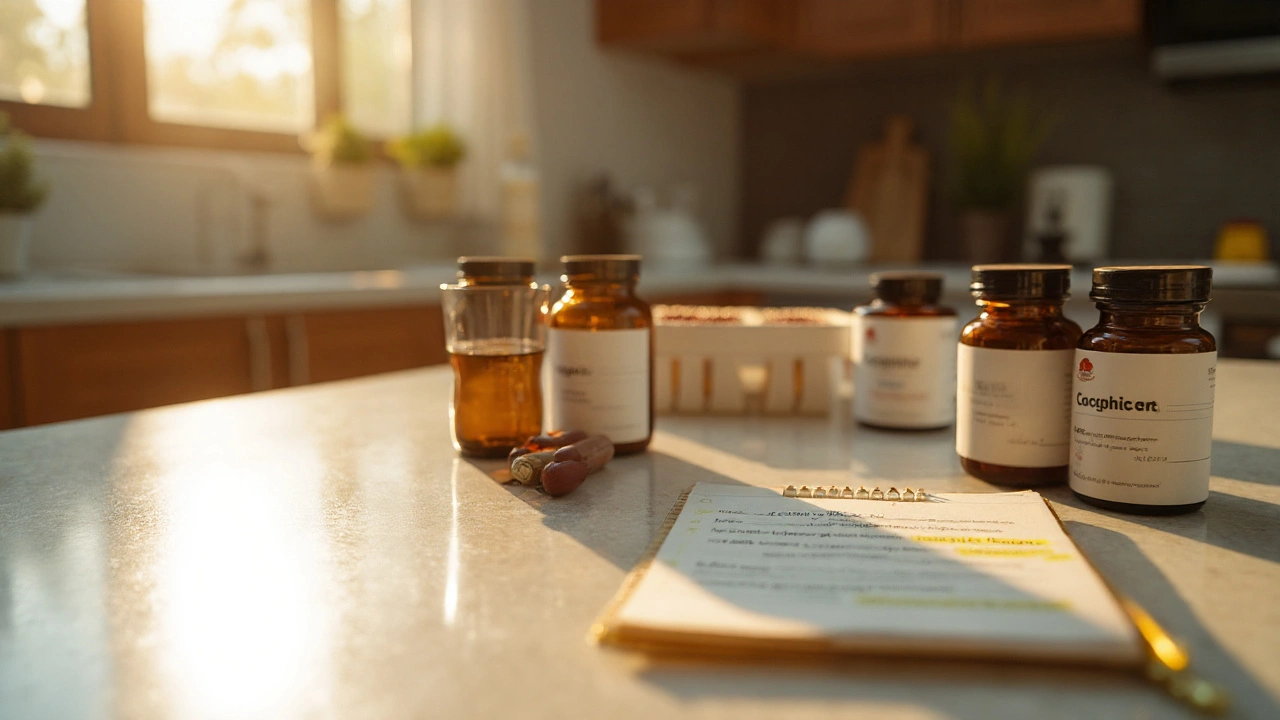
Evidence-backed guide to carnosine for anti-aging: what it does, how to dose, safety, smart stacks, UK prices, and steps to see results.
Everyone wants to look and feel younger, but the market is flooded with pills that promise miracles. Below you’ll find the real facts about the most studied anti‑aging ingredients, what they can actually do for you, and how to avoid wasteful or risky products.
First, understand that no supplement can stop aging completely. What they can do is support the body’s own repair processes, reduce oxidative stress, and keep skin, joints, and energy levels in better shape. When you know which ingredients have solid science behind them, you can separate hype from help.
Coenzyme Q10 (CoQ10) helps cells produce energy and works as an antioxidant. Studies show it can improve skin elasticity and reduce fine lines, especially in people over 40.
Collagen peptides are broken‑down protein that your body can reuse to rebuild skin, hair, and nails. When taken daily, many users report smoother skin and stronger nails within a few weeks.
Vitamin C is a classic antioxidant that supports collagen formation. Pairing it with bioflavonoids boosts absorption and gives a gentle skin‑brightening effect.
Resveratrol, found in red grapes, activates the same pathways that calorie restriction does, which may improve cellular repair. Doses around 150‑300 mg per day are commonly used in research.
Omega‑3 fatty acids (EPA/DHA) lower inflammation, a big driver of aging. Fish oil or algae‑derived supplements can help keep joints flexible and skin moisturized.
Other ingredients like nicotinamide riboside (NR) and curcumin are promising, but you’ll often see higher price tags with limited human data. Stick to the basics first.
Always check the label for third‑party testing. Look for seals from NSF, USP, or Informed‑Sport – they guarantee the product contains what it says without hidden contaminants.
Watch the dosage. More isn’t better; many anti‑aging studies use specific ranges. Taking twice the recommended amount can cause stomach upset or interact with prescription meds.
If you’re on blood thinners, be cautious with high‑dose omega‑3 or curcumin, as they can affect clotting. Talk to your doctor before adding any new supplement, especially if you have chronic conditions.
Buy from reputable brands that list the exact amount of each ingredient per serving. Avoid “proprietary blends” that hide the real dosage.
Remember that lifestyle matters more than any pill. Combine supplements with a balanced diet, regular exercise, adequate sleep, and sunscreen for the best anti‑aging results.
To sum up, focus on proven antioxidants like CoQ10, collagen, vitamin C, resveratrol, and omega‑3s. Choose products with third‑party certification, stick to recommended doses, and check with a health professional if you have any concerns. With the right approach, anti‑aging supplements can be a useful boost to a healthy lifestyle.

Evidence-backed guide to carnosine for anti-aging: what it does, how to dose, safety, smart stacks, UK prices, and steps to see results.